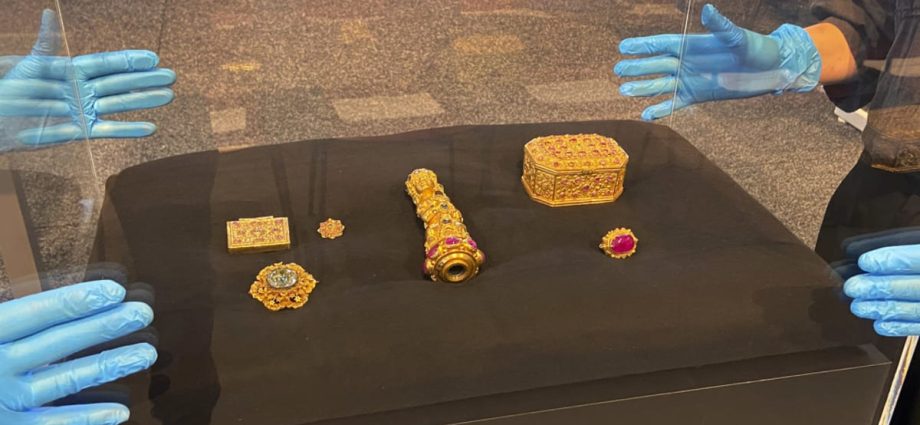
Indonesia got back more than the trove of glittering jewels and ancient carvings from a temple in Java, said Farid.
“We consider these objects as our missing items in our historical narrative and of course they play different roles symbolically, culturally,” he said. Their return means Indonesia can “reintegrate them into their cultural contexts. And that is, of course, of symbolic importance to us.”
Gunay Uslu, the Dutch state secretary for culture and media, called the presentation Monday “a historically, important” event that resonates beyond the Netherlands and its former colony.
“It’s also an important moment for the world because it’s about colonial objects in a colonial context. So it’s a sensitive topic,” she said.
A Berlin museum announced in January it is ready to return hundreds of human skulls from the former German colony of East Africa. In 2021, France said it was returning statues, royal thrones and sacred altars taken from the West African nation of Benin. And last year, Belgium returned a gold-capped tooth belonging to the slain Congolese independence hero Patrice Lumumba.

